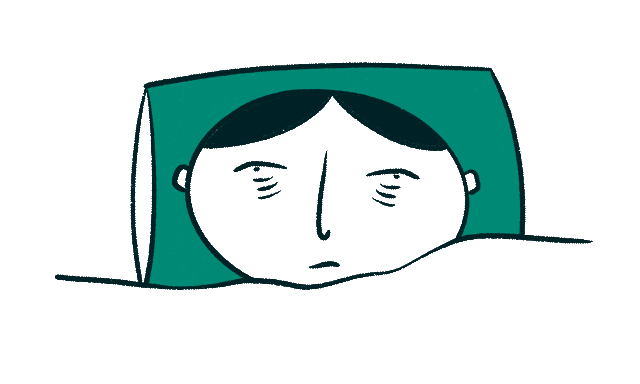Might Your MS Medications Be Causing Sleep Problems?

Research shows that sleep issues are very common in people living with multiple sclerosis (MS). Sleep issues can be caused by MS symptoms themselves, as well as the medicines used to treat the symptoms.1
MS has a host of symptoms that might be treated with medicines, such as:1
- Anxiety and/or depression
- Frequent nighttime urination (nocturia)
- Muscle spasms
- Pain (neuropathic or musculoskeletal)
- Restless legs syndrome
- Sleep-disordered breathing (such as obstructive or central sleep apnea)
- Excessive daytime fatigue
Below are some medicines that you might take for these symptoms. These medicines could also be the culprit behind any sleep problems you might be having.
Common drugs used in MS that can lead to sleep troubles
Pain relievers
According to a 2017 study, some pain relievers – such as gabapentin (Neurontin®) and pregabalin (Lyrica®) – can lead to sleep issues. These issues may include things such as:2
- Trouble falling or staying asleep (insomnia)
- Restless sleep or poor sleep quality
- Excessive daytime sleepiness
- Cognitive "fog" while awake
These findings are especially important for people with multiple sclerosis (MS). Gabapentin is commonly prescribed to treat neurological pain, such as trigeminal neuralgia and numbness or tingling. Gabapentin is also one of the first drugs that doctors use to treat spasms and spasticity related to MS.2
However, the side effects of both gabapentin and pregabalin include dizziness and sleepiness. Stopping either of these drugs suddenly can cause serious problems, including trouble sleeping.3,4
Disease-modifying therapies
Disease-modifying therapies (DMTs) are commonly used to reduce MS relapse frequency and slow the damage caused by MS. However, studies show that DMTs can have a negative impact on sleep. Examples include:5
- Interferon beta drugs (Avonex®, Betaseron®, Extavia®, Plegridy®, Rebif®) – These DMTs may cause fatigue, excessive daytime sleepiness, and insomnia.
- Glatiramer acetate (Copaxone®) – This DMT may cause poor sleep quality and daytime drowsiness.
Corticosteroids
Many people with MS are given corticosteroids (also known as steroids) for MS relapses. These drugs may be given either through a vein (intravenously) or by mouth (orally) over several days. Examples include methylprednisolone (Solu-Medrol®) and prednisone.6
Difficulty sleeping is a common side effect of steroid treatment. But the good news is that this side effect is temporary and resolves once the steroid therapy is concluded.6
Medicines for fatigue
Fatigue is one of the most common symptoms of MS. While no drugs have been approved to treat MS-related fatigue, doctors may prescribe medicines to help with alertness. Examples of medicines often used for fatigue in people with MS include:7
- Amantadine
- Methylphenidate (Concerta®, Ritalin®)
- Modafinil (Provigil®)
This might seem obvious, but taking a prescription for wakefulness may lead to a delay in sleep onset at night. If sleeplessness is a recurring problem with these kinds of medications, talk to your doctor as reduced dosages might still be effective for you.7
Antidepressants
Antidepressant drugs are often used to help manage mood changes that come with MS, including depression, anxiety, and irritability. If you are taking an antidepressant drug, you may experience insomnia, poor-quality sleep, and daytime sleepiness. Examples of these drugs include:8
- Bupropion (Wellbutrin®)
- Duloxetine hydrochloride (Cymbalta®)
- Fluoxetine (Prozac®)
- Trazodone
Don't forget: Not everything is caused by MS (or medicines)
Sleep disorders can happen independently of MS or medication use. I've found that many of these issues, like circadian rhythm sleep disorders, sleep apnea, insomnia, or periodic limb movements of sleep, can be hidden problems that only come to light when a person complains about having trouble sleeping at night or staying awake during the day.
The best way to identify and diagnose a sleep disorder is to talk to your doctor and undergo a sleep study. Fortunately, all sleep disorders can (and should) be treated. Treating a sleep problem can reduce pain sensitivity, lessen fatigue, and improve mood, among other things.
Join the conversation